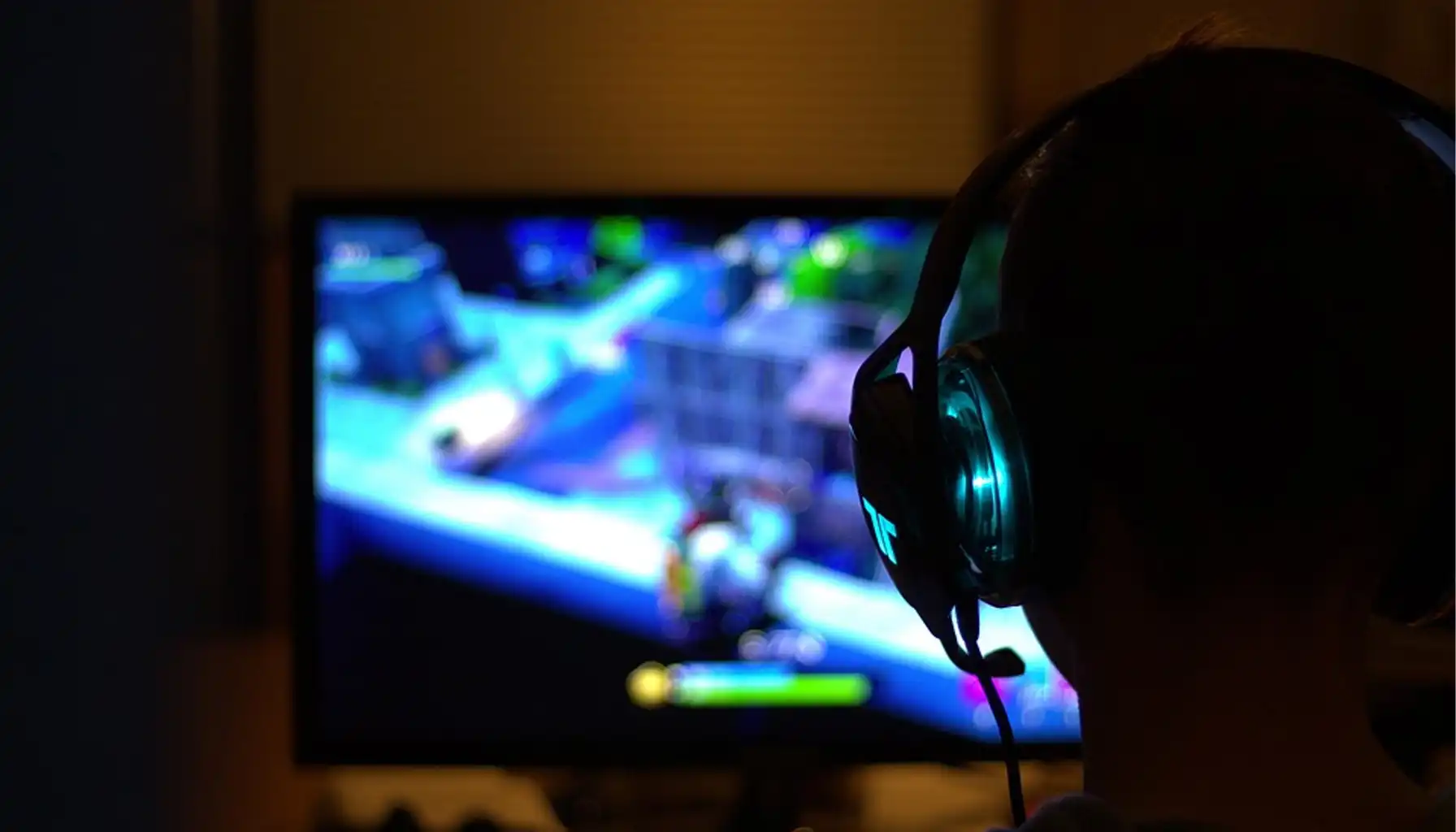Video Game Addiction: Recognizing Signs, Understanding Causes, and Finding Solutions

Contents:
With the advancement of technology, video game addiction is becoming a more serious problem affecting people of all ages. Although it was originally believed that only children could spend hours playing such games. It’s certainly an exciting and social activity. In this case, it’s important to remember that they can become a problem that interferes with normal daily life. Signs of video game addiction should be recognized as early as possible.
If you want to improve focus and break free from gaming, try using attention games to help retrain your brain and regain control over your concentration.
What is Video Game Addiction?

Many wonder: Is video game addiction real? This addiction is a compulsive desire to play games that negatively impacts various aspects of life, putting the nervous system into a state of stress. Symptoms of video game addiction include an inability to stop playing, sudden outbursts of aggression, and a reluctance to go out into society.
Signs of Video Game Addiction
Signs can appear in both children and adults. The degree of dependence will be different for everyone:
1. Inability to Control Gaming Habits
A video game lasting longer than originally intended.
A game becomes a higher priority than daily responsibilities.
Constant desire to play, even if the mind understands that it is bad.
2. Withdrawal Symptoms
People may experience:
Irritability or anxiety.
Fatigue or low mood.
Restlessness and feeling uncomfortable without gaming.
3. Decreased Social Interaction
Avoiding social events or relationships because of gaming – all socializing is there.
Desire to isolate from family and friends.
Difficulty maintaining real relationships.
Signs of Video Game Addiction in Adults
Adults who suffer from video game addiction often face serious consequences, especially in their professional and personal lives. Productivity at the workplace drops as gaming takes priority over work responsibilities, with deadlines being missed and management becoming dissatisfied. In the end, this can have negative effects on career growth and might even result in the employee's dismissal.
Excessive gaming can distance partners, family, and friends emotionally in relationships. Adults often give gaming the highest priority in their lives to the detriment of important relationships, sometimes to the point where the other person feels abandoned or starts to experience conflict.
For example, a wife may ask her husband to babysit the children when he doesn't want to because he is busy playing. In addition, the stress of balancing gaming with life’s responsibilities can lead to increased anxiety and emotional instability.
Another notable concern may involve financial issues, especially if spending too much on in-game purchases becomes your primary concern. Consider situations where food and basic necessities are pushed aside in favor of gaming. This worsens when one turns to gaming to escape issues like debt or personal problems.
ADHD and Video Game Addiction
People with ADHD are at increased risk of developing video game addiction because they have problems with impulse control and need constant stimulation to maintain their attention.

Video game addiction and ADHD are often linked because video games provide instant gratification, helping people with ADHD cope with their concentration difficulties. The rapid pace of most video games satisfies the need for constant mental stimulation. This is why people with ADHD are so addicted to them.
How Video Games Affect Those with ADHD:
It’s the instant gratification of games that is suitable for someone with ADHD, as people with ADHD are confronted with the reality that real life does not yield quick results.
Video games can temporarily improve attention spans by helping people with ADHD focus on one activity.
Games provide an outlet that helps focus the mind on positive things, as opposed to the stresses of school, work, and relationships for people suffering from ADHD.
Causes of Video Game Addiction
Video game addiction can stem from various factors:
Psychological issues: Depression, anxiety, and emotion instability make gaming a tempting escape.
Neurological factors: Video games trigger dopamine release, reinforcing the addictive cycle.
Environmental factors: The easy access to games and their immersive nature increase the likelihood of addiction.
Video Game Addiction Statistics

Video game addiction stats show that a significant portion of the population is affected by it. Researchers estimate that anywhere from 1.7% to 10% of the population in the U.S. suffers from some form of video game addiction.
The statistics vary due to the lack of consensus on the diagnostic criteria for internet gaming disorder, but it's clear that the issue is becoming more prevalent, particularly among younger generations.
Treatment for Video Game Addiction
Effective video game addiction treatment involves therapy, support, and lifestyle changes.
Therapy Options Include:
Cognitive Behavioral Therapy (CBT): One of the most effective treatments for video game addiction, CBT helps assess how realistically we think and identify distortions. By working with these thought patterns, people can learn healthier coping mechanisms and form new habits.
Support Groups: This is a valuable resource for those who belong to a community of like-minded individuals facing similar challenges, as it can provide emotional support and motivation to continue the recovery process.
Family Therapy: This is an essential part of treatment for people, as we all live in a family. It helps educate family members about the consequences of addiction and helps create a more positive atmosphere at home.
Practical Strategies to Overcome Video Game Addiction
There are several practical strategies that serve as solutions to video game addiction and can help break the cycle:
Set Time Limits: Start by setting a daily time limit for gaming and stick to it. It may be helpful to track the amount of time you spend gaming at first to better understand how much time you are spending. Gradually reduce the amount of time you spend gaming over several weeks to give your body and mind a chance to adjust without stress. Time intervals will help balance your daily routine by setting aside time for other activities.
Engage in Other Activities: Replacing your addiction with another activity is a great way to cope with stress. Any of these options—a bit of outdoor sports, hiking, cycling, or swimming—will benefit both your mind and body. Reading books, learning new skills, or even volunteering are a few other great alternatives that provide avenues for you to connect with other people.
Focus on Social Interactions: Spending more time with friends and family in real life significantly reduces dependence on virtual interaction. Organize social events, dinners, or meetings that are not related to gaming. When you spend time with loved ones, you will feel more balanced and involved in relationships, and the heavy feeling of isolation will disappear.
Seek Professional Help: If you find it difficult to control your gaming addiction, it is extremely important to seek help from a mental health professional. A therapist will help you understand the psychological triggers underlying your gaming behavior and offer a plan to combat your urge to game. Group therapy or support groups can also be helpful in developing a sense that you are not alone in the world.
Legal and Social Impacts of Video Game Addiction

Aspect | Description | Impact |
Microtransactions & Reward Systems | Features in games designed to encourage spending and prolonged engagement. | Criticized for promoting compulsive gaming behaviors, potentially contributing to addiction. |
Social Isolation | Gaming over other social activities, leading to withdrawal from family and friends. | Emotional distance and breakdown of relationships. |
Financial Consequences | Excessive spending on in-game purchases. | Can lead to financial instability or debt accumulation. |
Public Awareness | Increasing recognition of gaming addiction in media, legal cases, and research. | Drives societal acknowledgment of the issue, leading to the development of preventive measures. |
Legal Actions | Lawsuits for video game addiction, seeking compensation for damages, are being filed. | Reflects the increasing recognition of the problem and the real harm caused by excessive gaming. |
Conclusion
Video game addiction is a growing issue that can really shake up your life. Recognizing the warning signs, seeing how it might connect to ADHD, and taking steps like therapy or practical changes are super important for getting things back on track.
With the right help and strategies, you can absolutely break free from the gaming trap and reclaim your time and happiness.
If you’re wondering how to stop video game addiction, it all starts with admitting there’s a problem and getting the right support.





